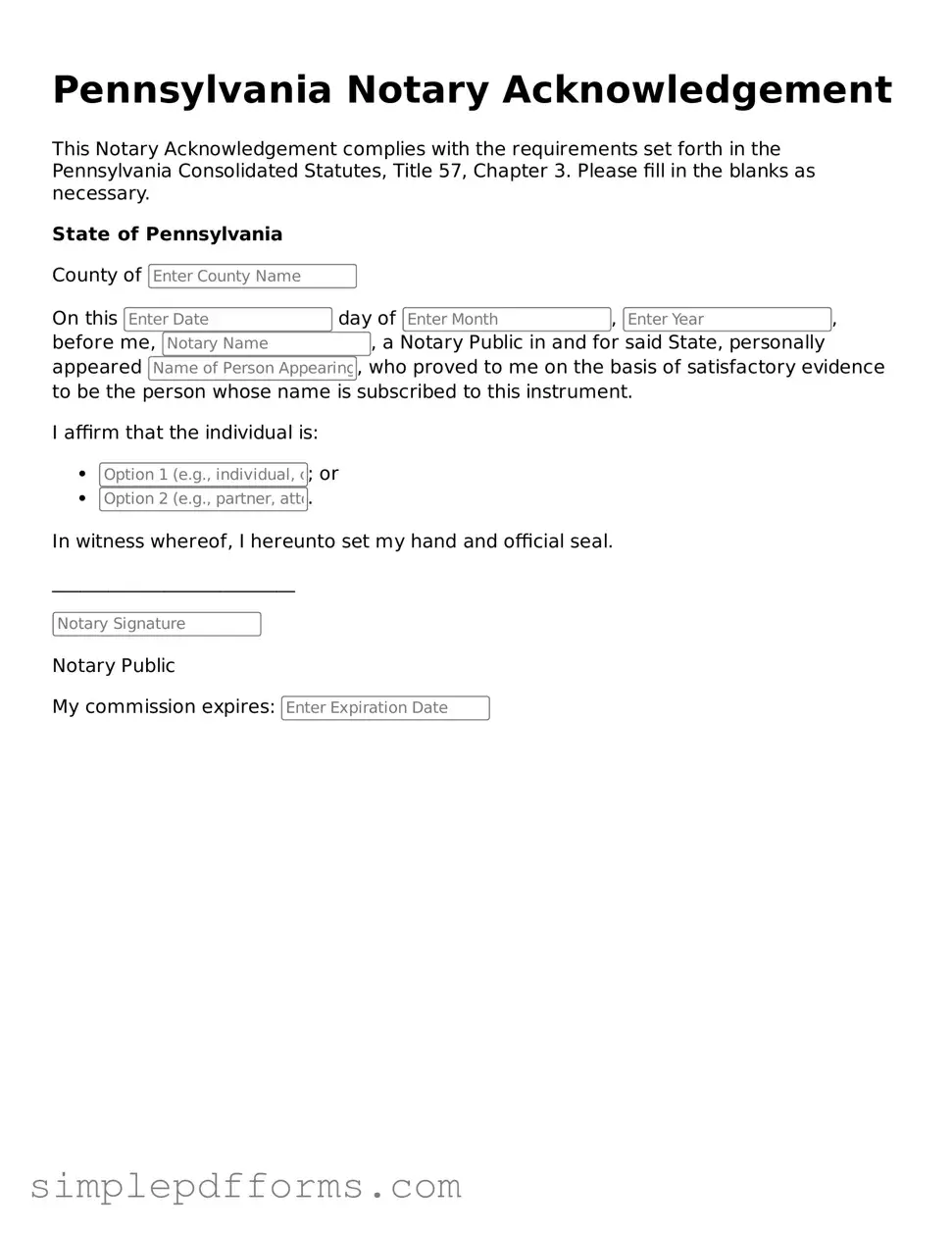Attorney-Verified Notary Acknowledgement Document for Pennsylvania State
The Pennsylvania Notary Acknowledgement form is a legal document used to verify the identity of individuals signing a document and to confirm that they did so willingly. This form is essential for ensuring the authenticity of signatures on various legal documents, such as contracts and deeds. Understanding how to properly complete and utilize this form can help prevent disputes and enhance the credibility of important agreements.
Open Notary Acknowledgement Editor Now

Attorney-Verified Notary Acknowledgement Document for Pennsylvania State
Open Notary Acknowledgement Editor Now

Open Notary Acknowledgement Editor Now
or
Get Notary Acknowledgement PDF Form
Your form is waiting for completion
Complete Notary Acknowledgement online in minutes with ease.